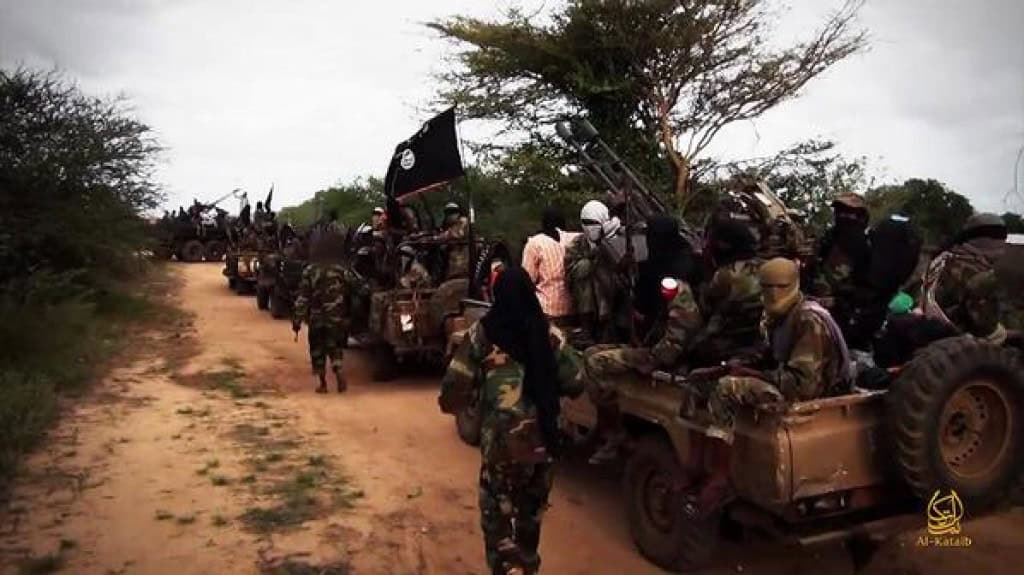
The Ugandan military has confirmed that 12 of its soldiers who were part of the African Union Mission in Somalia (AMISOM) were killed after Shabaab launched a suicide assault on a military base near Mogadishu earlier this week. Shabaab had claimed that it killed 70 Ugandan soldiers while overrunning the base.
A large jihadist suicide assault team launched a coordinated attack on the AMISOM base in Janale, which is about 50 miles southwest of Mogadishu, on Sept. 1. According to a statement released by Shabaab, one of its fighters rammed a vehicle packed with explosives into the perimeter of the base, then a team of heavily armed fighters entered the breach and attacked the troops inside. While the fighters were assaulting the base, another team destroyed a nearby bridge to cut off any reinforcements, a Somali military officer told Reuters on Sept. 1.
“No reinforcement can reach there,” Captain Bilow Idow said. “There is much death and damage.”
On the day of the attack, Sheikh Abdiasis Abu Musab, Shabaab’s military spokesman, told Reuters that “Janale base of AMISOM is under our control.”
That same day, the jihadist group released an official statement claiming that more than 50 Ugandan troops were killed during the assault as well as when they retreated from the base.
“After a successful martyrdom operation [suicide attack] at the entrance, the Mujahideen swiftly overran the base in a battle that lasted more than 40 minutes, securing the perimeters, defence posts and the entire military arsenal at the base,” Shabaab said in a statement that was published by the Shahada News Agency. “Dozens of Ugandan crusaders who fled the base were killed and others drowned as they tried to swim across the Shabelle River.”
“Mujahideen fighters from the ‘Sheikh Abu Zubeyr Battalion'” executed the suicide assault, according to the statement. The unit is named after Ahmed Abdi Godane, who was also known as Sheikh Mukhtar Abu Zubayr. He was the previous leader of Shabaab who was killed by the US in an airstrike on Sept. 1, 2014.
The number of troops killed in the Janale assault is unclear. AMISOM countries have downplayed or hid their losses in Somalia in the past, while Shabaab sometimes exaggerates the number of troops killed during its attacks. Additionally, it is unclear if Somali security forces or members of other AMISOM countries were among those killed in the attack.
The suicide assault, or coordinated attack using one or more suicide bombers and an assault team, is a tactic frequently used by al Qaeda and its branches and allied groups such as the Afghan Taliban, the Movement of the Taliban in Pakistan, Lashkar-e-Taiba, and by the rival Islamic State. Suicide assaults are commonly executed by jihadist groups in Iraq, Syria, Yemen, Afghanistan, Pakistan, Somalia, and Nigeria.
This summer, Shabaab has placed considerable emphasis on pressuring African Union forces in Somalia. At least three major attacks against AMISOM troops, including two ambushes and a suicide assault on a base, were executed by the jihadist group since the beginning of June.
One June 11, Shabaab claimed that its Sheikh Abu Zubayr Battalion ambushed and killed more than 60 Ethiopian troops. The jihadist group said it destroyed 13 vehicles and killed dozens of soldiers in the Ethiopian convoy after “mowing them down with machine guns.” Shabaab released photographs which appeared to back up its claim.
In late June, the Sheikh Abu Zubayr Battalion assaulted an African Union base in the southern Somalian town of Leego and reportedly killed more than 50 Burundian troops stationed there. Unconfirmed reports indicated that 15 suicide bombers were used in the attack, and some Burundian troops were beheaded.
In mid-July, Shabaab released photographs that showed the aftermath of an ambush on a Burundian military convoy near Leego. A video released by Shabaab included footage of retreating AMISOM armored vehicles.
Shabaab continues to remain a persistent threat despite being pushed out of its major urban strongholds of Mogadishu, Kismayo, and other large cities and towns in southern and central Somalia. The jihadist group still controls large rural areas in southern Somalia, and uses these safe havens to launch large-scale assaults in the country, even with a major African Union mission present. Shabaab has also increasingly been able to mount attacks across the border into neighboring Kenya.








2 Comments
very cool, I like it
show the names of the killed ugandan soldiers